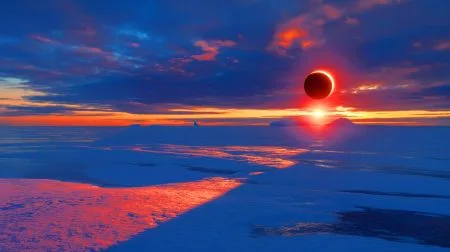The convention on the legal status of the Caspian Sea, which is expected to be signed at a summit of the five Caspian countries in Aktau in Kazakhstan, will purportedly recognise it as neither a lake nor sea.
Russia’s Deputy Foreign Minister Grigory Karasin told the Russian media: “The Caspian Sea will have a special legal status. This is due to a set of specific geographical, hydrological and other characteristics. It is an inland body of water, which has no direct connection with oceans, and therefore cannot be considered a sea.”
But its size, composition and bed meant it could not be considered a lake, Karasin said.
The Caspian basin has an estimated 50 billion barrels of oil and nearly 9 trillion cubic metres of gas in proven or probable reserves. At current market prices, that is several trillion dollars worth of resources and it could turn out to be much more.
Classifying the Caspian as a lake would mean the resources should be divided equally among the five countries while calling it a sea means the five countries should draw lines extending from their shores towards the midpoint.
Iran is arguably the loser under such an arrangement, as it would get only about 13 per cent of the Caspian, where it is at its deepest and saltiest. Tehran has resisted previous deals recognising the Caspian as a sea.
Kazakhstan is set to be the biggest winner as more than half of the Caspian’s hydrocarbon wealth would fall in a Kazakh sector.
Karasin said a compromise would be agreed: “In this regard, neither the provisions of the UN Convention on the Law of the Sea of 1982 nor the principles used in respect of transboundary lakes are applicable to the Caspian Sea. Only its bottom is delineated to sectors, but sovereignty over the water column is established on the basis of other principles,” he said.
He said Russia, Turkmenistan, Iran, Kazakhstan and Azerbaijan had always found ways to resolve disputes over the delimitation of the bed of the Caspian after the breakup of the USSR.
“In my opinion, the agreements that were previously concluded between Russia, Kazakhstan and Azerbaijan, as well as Kazakhstan and Turkmenistan, can serve as an example in the case of delimitation of the southern part of the sea,” Karasin said.
The presidents of the five states will meet on August 12 at the fifth Caspian summit to conclude negotiations on its legal status.
The issue of determining the legal status has been debated since the collapse of the USSR, when Azerbaijan, Kazakhstan and Turkmenistan raised the issue of delimitation of the sea between the five countries.
Kazakhstan has most to gain from defining the Caspian as a sea. Picture credit: Wikimedia
Did you like it? 4.5/5 (26)







